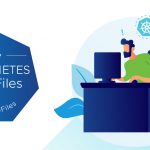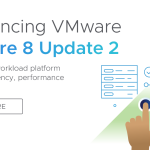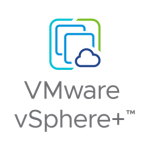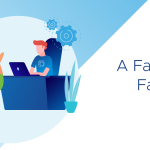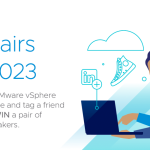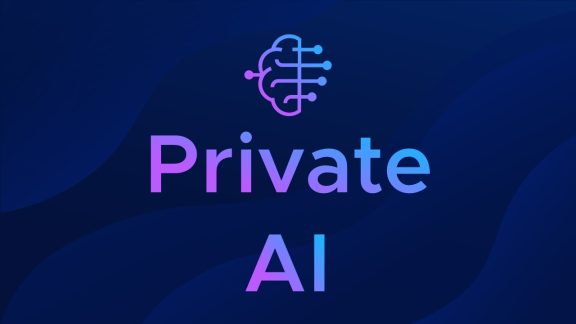Today we have two important announcements. First, the C# client (AKA Desktop Client/thick client/vSphere Client for Windows) will not be available for the next version of vSphere. Current versions of vSphere (6.0, 5.5) will not be affected, as those will follow the standard support period. You’ve heard this from us in the past, but we’ve been waiting for a sufficient replacement before finally moving forward. Second, we want to talk about the recent vSphere HTML5 Web Client Fling, user adoption, and VMware’s focus on bringing a great user experience. Like the Embedded Host Client Fling (which made it into vSphere in 6.0U2), we plan on bringing this product into a supported release soon.
We’ll be referring to the new client as the vSphere Client, as it better describes the product, and isn’t a ten syllable mouthful (vSphere HTML5 Web Client).
Looking to the Future
VMware has been working towards the transition to HTML5 with the Platform Services Controller UI, vCenter Server Appliance Management UI, and the Host Client. All three of these were very well received and have become the official interfaces for their respective components. The last (and biggest) one to tackle was the management interface for vCenter Server.
vSphere Web Client has always been intended to be the replacement for the Desktop client, and many of our users have tried to embrace this during the vSphere 5.5 and vSphere 6.0 periods, spending their time working within the Web Client even with the Desktop client available.
While there were certainly issues with the 5.5 and 6.0 Web Client, many users that committed to the experience came to enjoy many of the new features and usability improvements. We also continued to listen to our customers, making further efforts to improve the Web Client experience have been made across 5.5U3, 6.0U1 and 6.0U2, including VUM (vSphere Update Manager) in 6.0U1 Web Client. We have made the Desktop client available during this period, which was much longer than originally planned. But now that time is ending.
Additionally, due to the shift in backend services going from vSphere 6.0 to the next version, updating the Desktop client would have required a huge investment. This may have been okay in a vacuum, but the required resources would have severely impacted the progress of the new vSphere Client, only to end up with four clients for users to juggle. We decided to focus on bringing the new vSphere Client (HTML5 based) up to speed as fast as possible, simultaneously offering a great user experience and getting off of Flash.
The new vSphere Client (HTML5)
(Try it here: https://labs.vmware.com/flings/vsphere-html5-web-client)
This decision is about VMware trying to provide the best user experience: a fast, reliable, scalable modern interface that allows you to get your work done is our primary goal. The new vSphere Client is the best way to achieve that goal. Many have already tried out the Fling (https://labs.vmware.com/flings/vsphere-html5-web-client), with approximately 40% of survey respondents deploying it into Production and using it daily to manage their critical environments. With this Fling, we’ll keep the user experience mostly the same as the Web Client, which we’ve improved, based on your feedback. We also plan on making additional improvements to make it easier for C# users to transition.
One benefit of the Fling delivery model is very fast turnaround. We’ve been able to release a new version of the Fling every week, with new features, bug fixes, and performance improvements. More importantly, we’ve been able to quickly incorporate user feedback into the product. Sometimes this means simple bug fixes, sometimes this means changing our priorities to better address user needs. While this pace and model of delivery may not be used for the fully supported releases, due to testing time required, we likely will continue to use the Fling releases to stay on track with users. A fundamental part of this high touch engagement model is users staying as up-to-date as possible, and most of our Fling users are doing just that, so thank you!
Plugins
We also recognize how important plugins are, and the transition from Web Client to vSphere Client will take second and third-party plugins into account. We’ve already started engaging with plugin developers of all sorts to get them moving to the HTML bridge, which will allow the creation of a single plugin that is forward and backward compatible with both the vSphere Client and the Web Client, creating a smooth transition path. If you require more information on plugin migration, please contact us. One great source of information is this site which contains a lot of future looking information about vCenter. This site will be updated as more information becomes available, so keep an eye on it: http://www.vmware.com/products/vcenter-server/future-overview/overview.html
We do expect the plugin transition to take some time, and this means that we expect to ship the Flex based Web Client and the HTML5 based vSphere Client side by side for some uncertain period. Everyone is very eager to have the new vSphere Client as the only client, but we want to respect the porting development time our partners require.
Seeking your Feedback
Hopefully these announcements come as a shock to no one – they are simply a reiteration of the message VMware has given for years. We are continually working to make vSphere Client a fast, reliable, and scalable product that provides a great overall experience. If you have any comments, please post them below. We’d like to hear feedback from all points of view, as we look to the future instead of the past.
Dennis Lu
Product Manager, vSphere Clients



